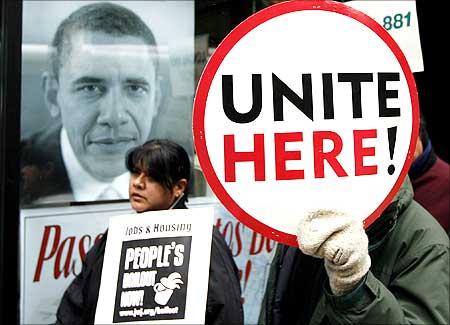
When China and India are excluded, GDP in the remaining developing countries is projected to fall by 1.6 per cent.
The global growth is also expected to be negative, with an expected 2.9 per cent contraction of global GDP in 2009. Fiscal balances in 2009 are expected to deteriorate by about 3 percent of GDP in high-income countries, and by about 4.4 percent of GDP in developing countries.
Global economy should start to grow again in late 2009, but "the expected recovery is projected to be much less vigorous than normal," the report said. Here's a look at the World Bank's growth projections for India and rest of the world...
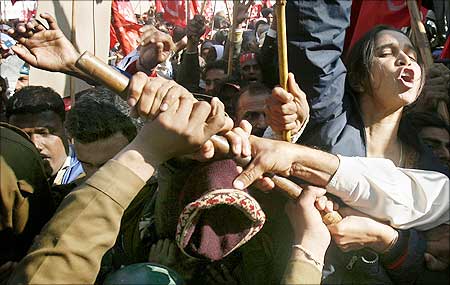
The World Bank has forecast India's economy to grow by 5.1 per cent this fiscal, the slowest in six years, although India has consistently outperformed the World Bank's estimates in the past.
The Indian economy had grown by 6.7 per cent in 2008-09 against the World Bank's estimate of 6.1 per cent, despite recession setting in most of the developed nations.
The declining output of the manufacturing sector pulled down the economic growth rate in the fourth quarter of 2008-09 to 5.8 per cent and 6.7 per cent in the entire fiscal.
India had recorded a GDP growth rate of 9 per cent during 2007-08. The GDP growth in the fourth quarter of 2007-08 was 8.6 per cent.
South Asia has seen a drop in capital inflows and investment growth. The GDP is projected to expand 4.6 per cent in 2009, down from 6.1 per cent in 2008 in this region.
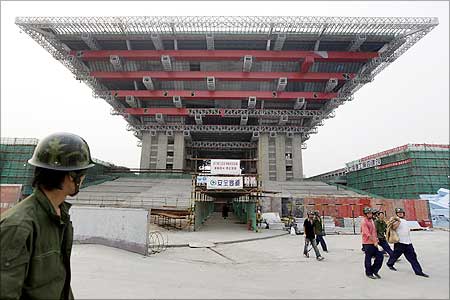
The East Asia and Pacific region will grow by 5 per cent. Amid the financial crisis, China leads with a GDP growth forecast of 6.5 per cent.
The East Asia and Pacific region has felt the full brunt of the crisis because of its close trade links with high-income countries and declining investment as well as a drop in exports and industrial production.
China is weathering the financial crisis better than many others because it does not rely on external financing.
A large government investment program, equivalent to 12 per cent of its GDP (2008), was announced in late 2008. With monetary easing measures and domestic demand helped the economy to an extent.
The real GDP growth eased to a 10-year low of 6.1 per cent in the first quarter of 2009 (year-on-year) from 9 per cent for the year 2008 and a record 13 per cent in 2007.

The World Bank has cut its forecast for the United State this year, predicting a 3 per cent drop in the world's biggest economy, after predicting a 2.4 per cent contraction in March.
In developing countries growth is expected to be higher, at 4.4 per cent in 2010 and 5.7 per cent in 2011.
Meanwhile, the global trade is expected to plunge by 9.7 per cent this year, while total gross domestic product for high-income countries contracts by 4.2 per cent, the bank said.

Japan's GDP will shrink by 6.8 per cent, more than the earlier forecast of a 5.3 per cent fall, says the World Bank study.
The economy had crashed in the last quarter after a fall in the exports sector and drop in domestic demand. The GDP fell at an annual pace of 15.2 per cent in the January-March quarter, the highest fall since 1955.
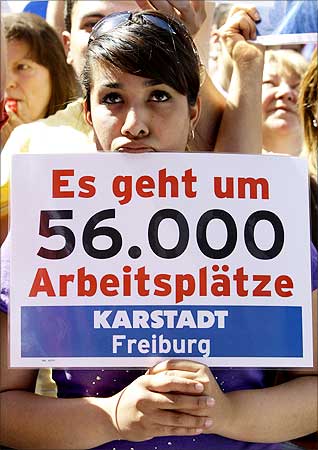
The Euro area's economy may shrink by 4.5 per cent, compared with the previous estimate of a drop of 2.7 per cent.
Europe saw a quarterly drop in GDP in the first quarter of the year, falling by 2.5 per cent. Exports and investment also fell drastically in the 27-nation zone.

High income nations like OECD (Organisation for Economic Co-operation and Development) countries are estimated to shrink by 4.2 per cent in 2009, while GDP in non-OECD nations will fall by 4.8 per cent.
The report states that extraordinary policy responses by a number of big economies have prevented systemic collapse, they stress the importance of concerted global action while the crisis is still underway.
"To prevent a second wave of instability, policies have to focus rapidly on financial sector reform and support for the poorest countries," said Hans Timmer, Director of the Bank's Prospects Group.

Brazil
The GDP in Latin America and the Caribbean will fall by 2.2 per cent, says the World Bank report while Brazil will see the GDP fall by 1.1 per cent.
Brazil entered the crisis supported by stronger fiscal, currency, and financial fundamentals than in the past. However, it is feeling the crisis in part because of falling commodity prices, and foreign funds being withdrawn quickly.
Flexible exchange rates in many countries in the region were able to absorb much of the initial shock and avoid systemic problems even as equity markets tumbled.
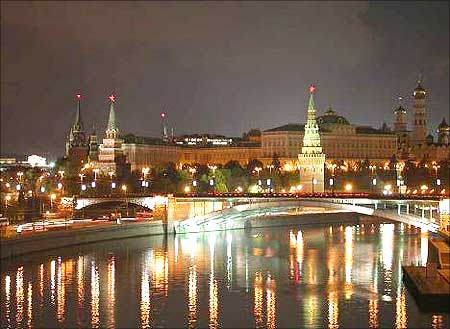
The Europe and Central Asian region will be the worst hit with a GDP fall of 4.7 per cent and Russia will see the biggest GDP fall of 7.5 per cent.
Europe and Central Asia has been the most adversely affected by recent developments, as many countries in the region entered the crisis period suffering from substantial imbalances.
Large current account deficits and domestic overheating made many countries vulnerable to the abrupt reversal of capital flows and weaker export demand that the crisis generated.
Today, developing countries rely heavily on private flows and many countries are being hit by a collapse in corporate finance, with big companies and banks that were powering growth now in distress.
The risk of balance-of-payments crises and corporate debt restructurings in many countries warrant special attention, the report warns.

The Middle East and North Africa region has been less directly affected by the credit crunch than other regions, but local equity and property markets have come under intense pressure, and developing countries in the region have suffered from much weaker conditions in the high-income countries in the region, states the study.
The growth is projected to halve to 3.1 percent in 2009, then edge up to 3.8 per cent in 2010 and 4.6 per cent in 2011.
The Sub-Saharan African region has been hit hard by a fall in external demand, plunging export prices, weaker remittances and tourism revenues, and sharply lower capital inflows, notably FDI.
The growth is expected to crash to 1 per cent this year, down from 5.7 per cent on average over the past three years.